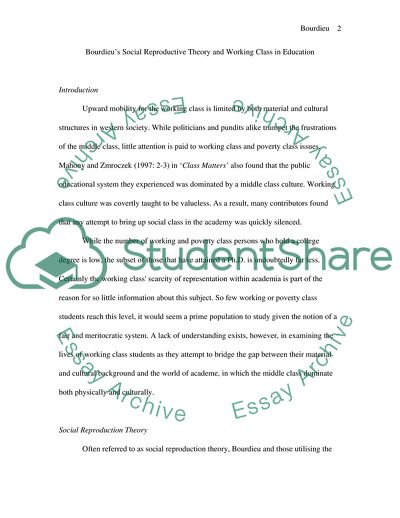Cite this document
(Bourdieus Social Reproductive Theory and Working Class in Education Research Paper, n.d.)
Bourdieus Social Reproductive Theory and Working Class in Education Research Paper. https://studentshare.org/sociology/1764673-choose-an-everyday-topicsituation-and-evaluate-it-using-the-ideas-of-one-theorist-covered-in-the-module
Bourdieus Social Reproductive Theory and Working Class in Education Research Paper. https://studentshare.org/sociology/1764673-choose-an-everyday-topicsituation-and-evaluate-it-using-the-ideas-of-one-theorist-covered-in-the-module
(Bourdieus Social Reproductive Theory and Working Class in Education Research Paper)
Bourdieus Social Reproductive Theory and Working Class in Education Research Paper. https://studentshare.org/sociology/1764673-choose-an-everyday-topicsituation-and-evaluate-it-using-the-ideas-of-one-theorist-covered-in-the-module.
Bourdieus Social Reproductive Theory and Working Class in Education Research Paper. https://studentshare.org/sociology/1764673-choose-an-everyday-topicsituation-and-evaluate-it-using-the-ideas-of-one-theorist-covered-in-the-module.
“Bourdieus Social Reproductive Theory and Working Class in Education Research Paper”. https://studentshare.org/sociology/1764673-choose-an-everyday-topicsituation-and-evaluate-it-using-the-ideas-of-one-theorist-covered-in-the-module.


